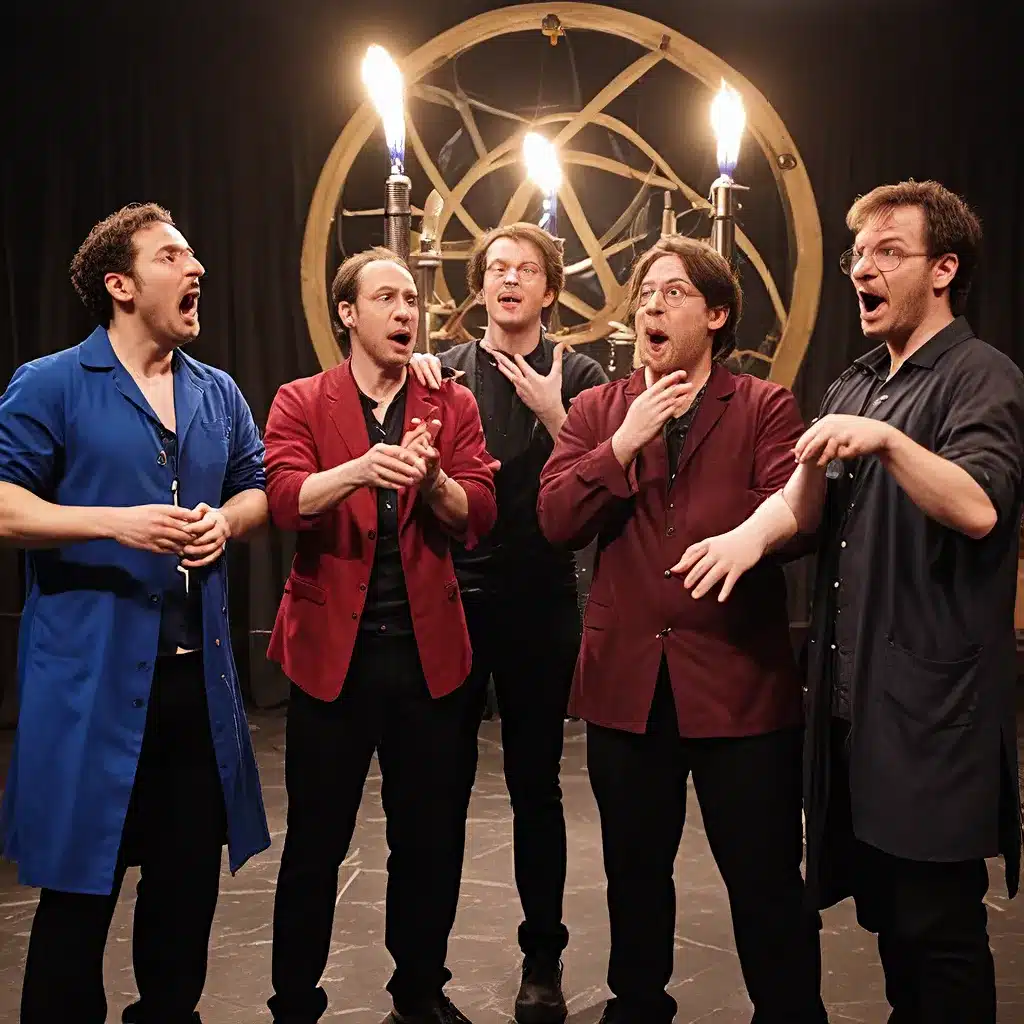
Embracing the Unknown: The Art of Improvisation
As an avid theater enthusiast, I’ve always been in awe of the performers who can effortlessly navigate the stage, weaving intricate narratives and captivating audiences without a script in hand. These improvisational artists possess a rare and remarkable talent – the ability to transform the unknown into pure theatrical brilliance.
Recently, I had the privilege of speaking with Suleika Jaouad, a writer whose own life journey has been a testament to the power of improvisation. In a poignant conversation on the “We Can Do Hard Things” podcast, Suleika shared insights that resonate deeply with the world of improvisational theater.
Suleika, who has navigated the unpredictable terrain of illness and uncertainty, explained how she and her husband, musician John Batiste, have embraced the art of spontaneity and adaptability. “One of the interesting things about living with an illness and having limited energy is that you have to get really clear on what you want to do and who you want to spend time with,” she reflected.
This mindset – of focusing on the essential and adapting to the ever-changing landscape – is precisely what fuels the magic of improvisation on stage. As Suleika so eloquently put it, “rather than cramming my schedule full and thinking of that as productivity, really honing in on the things that I can do that I want to do and picking a few of them has actually ended up being more creatively generative.”
The Improv Alchemists: Turning Uncertainty into Art
It’s this ability to pivot, to find the light in the darkness, that truly sets the improv alchemists apart. Take, for example, the awe-inspiring moment captured in the documentary “American Symphony,” where composer John Batiste finds himself on stage at Carnegie Hall, leading a symphony orchestra, when the power suddenly cuts out.
In a moment that could have been catastrophic, Batiste responds with a brilliant impromptu piano solo, seamlessly navigating the unexpected challenge and captivating the audience. As Suleika described it, “He played for 10 minutes and the power went back on and they continued with the symphony. But the most amazing thing about that was that nobody in the audience had any idea the power had gone out.”
This is the essence of improv – the ability to transform uncertainty into something remarkable, to find the beauty in the unexpected. It’s a skill that extends far beyond the stage and into the very fabric of life itself.
Cultivating the Improv Mindset
So, what is it that sets these improv alchemists apart? What can we learn from their ability to thrive in the face of the unknown?
1. Embracing Vulnerability
One of the key ingredients to successful improvisation is a willingness to be vulnerable. As Suleika shared, “Ive had to get limber and flexible- like the jellyfish.” It’s this openness to the unpredictable, this embrace of the uncontrollable, that allows improv artists to tap into their creative wellspring.
Suleika reflected on the importance of vulnerability, noting, “If your characters are out there in the rain about to share an epic kiss, don’t try to just paste the requisite emotions on top. Dig deep and be honest. What would you be feeling in a scene like this?” It’s this willingness to confront one’s own emotions and insecurities that enables improv performers to create scenes that resonate with raw authenticity.
2. Embracing the Familiar and the Unfamiliar
While improv alchemists are masters of the unexpected, they also recognize the power of the familiar. As Suleika explained, “Not every emotional scene needs to be one readers have never before experienced. In fact, the universal scenes talked about above are staples of good fiction not least because they are staples in life.”
The key, however, is to take these familiar tropes and put a fresh spin on them. Much like Batiste’s brilliant piano solo at Carnegie Hall, the improv alchemists know how to take the expected and transform it into the extraordinary.
3. Embracing Subtext and Context
One of the hallmarks of great improvisation is the skillful use of subtext and context. As the article on Helping Writers Become Authors explains, “What you don’t saywhat you leave between the lineshas the power to be some of the most emotionally powerful stuff in your entire story.”
The improv alchemists understand the importance of building up to those pivotal moments, of earning the right to evoke a powerful emotional response from the audience. They masterfully weave context and subtext, creating a rich tapestry that draws the audience in and leaves them hungering for more.
Improv as a Way of Life
As I reflect on my conversation with Suleika and the insights gleaned from the world of improv, I can’t help but see the parallels to our own lives. How often do we find ourselves in situations that seem to defy our carefully laid plans? How many times have we been faced with the unknown, only to freeze in fear rather than embracing the opportunity for transformation?
The improv alchemists, with their unwavering courage and adaptability, offer us a powerful lesson. They remind us that the true magic often lies in the spaces between the scripted, in the moments where we must leap into the unknown and trust in our own ability to create something extraordinary.
At the Musical Theater Center, we believe that this improv mindset is not just for the stage – it’s a way of life. Through our programs and workshops, we empower students to cultivate the skills and mindset of the improv alchemists, equipping them with the tools to navigate the uncertainties of life with grace, creativity, and an unwavering sense of possibility.
So, the next time you find yourself faced with the unexpected, take a page from the improv alchemists’ playbook. Embrace your vulnerability, draw upon the familiar and the unfamiliar, and trust in the power of subtext and context. Because who knows? Your next improvised moment just might be the one that transforms uncertainty into theatrical brilliance.

